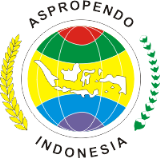CRITICAL REVIEW OF ANALYSIS OF FINANCIAL LITERACY POLICY INTEGRATION IN THE CURRICULUM: A BIBLIOMETRIC APPROACH
DOI:
https://doi.org/10.23917/jpis.v35i1.10075Keywords:
financial literacy, curriculum integration, bibliometric analysisAbstract
This study explores the integration of financial literacy into education curricula, with a particular focus on Indonesia’s Merdeka Curriculum, using a bibliometric review of 316 peer-reviewed articles from the Scopus database (2016–2025). Through bibliometric mapping via VOSviewer, the research identifies five thematic clusters: policy development, behavioral outcomes, student knowledge and attitudes, digital financial literacy, and interdisciplinary education strategies. Key findings reveal a global surge in financial literacy research post-2016, largely driven by policy mandates and the rise of digital finance, with the United States leading in scholarly output. However, research remains heavily concentrated in high-income countries, while regions like Indonesia are underrepresented despite clear policy interest. The study uncovers several implementation barriers in educational settings, including limited teacher training, inadequate resources, and a lack of standardized evaluation metrics. Promising practices—such as project-based learning, the integration of financial literacy into mathematics, and digital tools—have demonstrated improved student engagement and financial behavior. In Indonesia, six core studies suggest a growing awareness of financial education but underscore the need for contextualized curricula and community-based support. The study recommends more inclusive policies, cross-disciplinary collaboration, and longitudinal impact assessments to ensure financial literacy becomes a core competency in global education systems.
Downloads
References
Agu, E. E., Abhulimen, A. O., Obiki-Osafiele, A. N., Osundare, O. S., Adeniran, I. A., & Efunniyi, C. P. (2024). Proposing Strategic Models for Integrating Financial Literacy into National Public Education Systems. International Journal of Frontline Research in Multidisciplinary Studies, 3(2), 010–019. https://doi.org/10.56355/ijfrms.2024.3.2.0025.
Al Maalouf, N. J., Daouk, A., Elia, J., Ramadan, M., Sawaya, C., Baydoun, H., & Zakhem, N. B. (2023). The Impact of Emotional Intelligence on the Performance of Employees in the Lebanese Banking Sector During Crisis. Journal of Law and Sustainable Development, 11(9), e1030. https://doi.org/10.55908/sdgs.v11i9.1030.
Atahau, D. R., Sakti, I. M., Hutar, N. R., Huruta, D., & Kim, M.-S. (2023). Financial Literacy and Sustainability of Rural Microfinance: The Mediating Effect of Governance. Cogent Economics & Finance, 11(2), 2230725. https://doi.org/10.1080/23322039.2023.2230725.
Badan Standar, Kurikulum, Dan Asesmen Pendidikan Kementerian Pendidikan, Kebudayaan, Riset, Dan Teknologi Republik Indonesia (BSKAP). (2024). Pendidikan Literasi Finansial: Panduan Implementasi untuk Satuan Pendidikan dan Pemangku Kepentingan. Jakarta.
Barrot, J. S., Gonzales, J. M., Eniego, A. A., Salipande, A. L., & Olegario, Ma. L. G. (2024). Integrating Financial Literacy into the K-12 Curriculum: Teachers’ and School Leaders’ Experience. The Asia-Pacific Education Researcher, 33(1), 17–25. https://doi.org/10.1007/s40299-022-00704-y.
Bellocchi, A., & Travaglini, G. (2025). Financial Literacy and Financial Education: The Role of Irreversible Costs. Economics Letters, 247, 112173. https://doi.org/10.1016/j.econlet.2025.112173.
Clarke, P. (2004). A Path to Financial Literacy: Potential Impact of a Personal Finance Course. https://abeweb.org/proceedings/proceedings05/clarke.pdf.
Echchakoui, S., & Heppell, H. (2023). Financial Literacy: A Bibliometric Literature Review. Advances in Management and Applied Economics, 13(3), 129–161. https://doi.org/10.47260/amae/1335.
Fornero, E., & Lo Prete, A. (2023). Financial Education: From Better Personal Finance to Improved Citizenship. Journal of Financial Literacy and Wellbeing, 1(1), 12–27. https://doi.org/10.1017/flw.2023.7.
Gremi, E., Çerri, S., Morina, M., Kotollaku, M., Çela, M., & Durmishi, A. (2024). Raising Awareness of Financial Education Among Youth in The Elbasan Region, Albania. Multidisciplinary Reviews, 8(4), 2025130. https://doi.org/10.31893/multirev.2025130.
Hashinaga, M. (2023). Financial Education and Financial Behavior. In A Research Agenda for Consumer Financial Behavior (pp. 33–46). Edward Elgar Publishing. https://doi.org/10.4337/9781803922652.00011.
Jhonson, B., Andriani, R., Noviana, I., & Tamara, D. (2023). The Influence of Digital Financial Literacy on Financial Well-Being Through Spending, Saving, and Investment Behavior in Indonesia. Journal of Business Studies and Management Review, 6(2), 157–168. https://doi.org/10.22437/jbsmr.v6i2.24793.
Kalmi, P., & Rahko, J. (2022). The Effects of Game-Based Financial Education: New Survey Evidence from Lower-Secondary School Students in Finland. The Journal of Economic Education, 53(2), 109–125. https://doi.org/10.1080/00220485.2022.2038320.
Kulkarni, R, & Chandratre, S. (2022). Need for Finance Education in School Curricula. Journal of Student Research, 11(3). https://www.jsr.org/hs/index.php/path/article/view/3163/1400.
Kusumahadi, T. A., & Utami, N. (2024). Pentingnya Literasi Keuangan di Pedesaan: Studi pada Desa Tegalsari, Kabupaten Magelang, Jawa Tengah. Jurnal Inovasi Penelitian dan Pengabdian Masyarakat, 4(2), 240–254. https://doi.org/10.53621/jippmas.v4i2.371.
Lopez-Agudo, L. A., & Marcenaro-Gutierrez, O. D. (2023). Financial Education in Secondary Education: A Cross-country Analysis. CESifo Economic Studies, 69(1), 21–60. https://doi.org/10.1093/cesifo/ifad002.
Louis, S., Siswandari, S., & Noviani, L. (2024). Essential Components of Teacher Professional Development for Financial Literacy: A Literature Review. Journal of Education and Learning, 18(2), 570–578. https://doi.org/10.11591/edulearn.v18i2.21274.
Lusardi, A., & Messy, F.-A. (2023). The Importance of Financial Literacy and Its Impact on Financial Wellbeing. Journal of Financial Literacy and Wellbeing, 1(1), 1–11. https://doi.org/10.1017/flw.2023.8.
Mancone, S., Tosti, B., Corrado, S., Spica, G., Zanon, A., & Diotaiuti, P. (2024). Youth, Money, and Behavior: The Impact of Financial Literacy y Programs. Frontiers in Education, 9. https://doi.org/10.3389/feduc.2024.1397060.
Oberrauch, L., & Kaiser, T. (2024). Financial Education or Incentivizing Learning-ByDoing? Evidence From an RCT With Undergraduate Students. Journal of Behavioral and Experimental Finance, 43, 100954. https://doi.org/10.1016/j.jbef.2024.100954.
Pangestu, S., & Karnadi, E. B. (2020). The Effects of Financial Literacy and Materialism on The Savings Decision of Generation Z Indonesians. Cogent Business and Management, 7(1). https://doi.org/10.1080/23311975.2020.1743618.
Pazoto, C. E., Duarte, M. R., & Silva, E. P. (2024). Challenges and Prospects for Teaching Ocean Literacy in Brazilian Schools. Marine Policy, 166, 106220. https://doi.org/10.1016/j.marpol.2024.106220.
Puspitarona, D. S., Abdulhak, I., & Rusman. (2019). Financial Literacy for Elementary School Students: Case Study of Bandung City, Indonesia. International Journal of Learning, Teaching and Educational Research, 18(10), 292–307. https://doi.org/10.26803/IJLTER.18.10.19.
Rani, S., & Neha, G. (2022). Potential Sub-Topics and Trend Topics in Financial Literacy: A Bibliometric Analysis. International Journal of Accounting & Finance Review, 10(1), 35-52. https://doi.org/10.46281/ijafr.v10i1.1649.
Rapina, R., Meythi, M., Rahmatika, D. N., & Mardiana, M. (2023). The Impact of Financial Literacy and Financial Behavior in Entrepreneurial Motivation–Evidence from Indonesia. Cogent Education, 10(2). https://doi.org/10.1080/2331186X.2023.2282827.
Rath, J. P., & Patra, S. (2023). Financial Literacy in India – A New Way Forward. ComFin Research, 11(2), 20–27. https://doi.org/10.34293/commerce.v11i2.6172.
Rosnelli, & Ristiana, P. A. (2023). Independent Curriculum Learning Management to Improve Students’ Literacy and Numerical Competence in Schools. International Journal of Education in Mathematics, Science and Technology, 11(4), 946–963. https://doi.org/10.46328/ijemst.3513.
Sabirin, S., Benius, B., Neneng, S., Nurwati, S., & Hendrayati, S. L. (2023). The Importance of Early Financial Literacy Management Skills: Challenges and Opportunities For Economic Development. International Journal of Business, Economics & Management, 6(2), 100–106.
Sagita, L., Putri, R. I. I., Zulkardi, & Prahmana, R. C. I. (2022). Promising Research Studies between Mathematics Literacy and Financial Literacy through Projectbased Learning. Journal on Mathematics Education, 13(4), 753–772. https://doi.org/10.22342/jme.v13i4.pp753-772.
Sahabuddin, Z. A., & Hadianto, B. (2023). Gender, Financial Literacy, and Financial Behavior Among Students. Humanities and Social Sciences Letters, 11(2), 203–212. https://doi.org/10.18488/73.v11i2.3367.
Sari, R. C., Fatimah, P. L. R., & Suyanto. (2017). Bringing Voluntary Financial Education in Emerging Economy: Role of Financial Socialization During Elementary Years. The Asia-Pacific Education Researcher, 26(3–4), 183–192. https://doi.org/10.1007/s40299-017-0339-0.
Senduk, F. F. W., Djatmika, E. T., Wahyono, H., Churiyah, M., Mahasneh, O., & Arjanto, P. (2024). Fostering Financially Savvy Generations: The Intersection of Financial Education, Digital Financial Misconception and Parental Wellbeing. Frontiers in Education, 9(September), 1–15. https://doi.org/10.3389/feduc.2024.1460374.
Spivak, I., Mihus, I., & Greben, S. (2024). Financial Literacy and Government Policies: An International Study. Public Administration and Law Review, 2(18), 21-33.
Suto, Y., Moriya, H., Ikenoue, Y., & Sasaki, Y. (2025). Developing Future Engineering Leaders: Evaluating A Novel Entrepreneurship Education Course. The International Journal of Management Education, 23(2), 101084. https://doi.org/10.1016/j.ijme.2024.101084.
Wang, Q., Niu, G., Zhou, Y., & Gan, X. (2025). Education and FinTech adoption: Evidence from China. China Finance Review International, 15(1), 140–165. https://doi.org/10.1108/CFRI-06-2023-0141.
Yuwono, W., Susanna, Ramadhani, D. S., Sasmita, E. W., & Sihotang, W. H. (2023). Analysis of the Influence of the Role of Financial Literacy on Personal Financial Management. European Journal of Business and Management Research, 8(3), 57–61. https://doi.org/10.24018/ejbmr.2023.8.3.1891.
Yadav, M., & Banerji, P. (2023). A Bibliometric Analysis of Digital Financial Literacy. American Journal of Business, 38(3), 91–111. https://doi.org/10.1108/AJB-11-2022-0186.
Yordudom, T., Imjai, N., Usman, B., & Aujirapongpan, S. (2024). Unveiling The Impact of Social Skills and Financial Literacy on Internship Performance: Insights from Thai Generation Z Hospitality Students. Social Sciences & Humanities Open, 10, 101012. https://doi.org/10.1016/j.ssaho.2024.101012.
Yudiana, K., Putri, N. N. C. A., & Antara, I. G. W. S. (2023). Kesenjangan Kemampuan Literasi Siswa Sekolah Dasar di Daerah Perkotaan, Pinggiran Kota, dan Pedesaan. Jurnal Penelitian dan Pengembangan Pendidikan, 7(3), 540–547. https://doi.org/10.23887/jppp.v7i3.69790.
Zhu, A. Y. F. (2025). Unlocking Financial Literacy with Machine Learning: A Critical Step to Advance Personal Finance Research and Practice. Technology in Society, 81, 102797. https://doi.org/10.1016/j.techsoc.2024.102797
Downloads
Submitted
Accepted
Published
Issue
Section
License
Copyright (c) 2025 Jurnal Pendidikan Ilmu Sosial

This work is licensed under a Creative Commons Attribution 4.0 International License.













